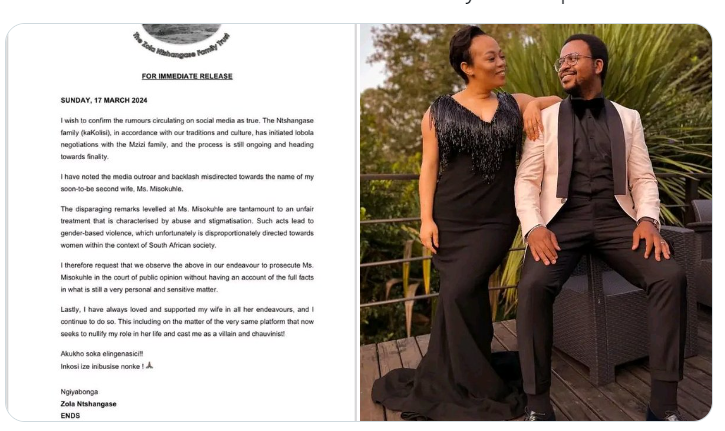Aspiring medical professionals often seek financial assistance to support their studies. A fully funded scholarship to study Medicine and Surgery offers an incredible opportunity for international students to pursue their dreams without the burden of tuition fees. These scholarships not only cover tuition but may also provide stipends for living expenses, travel allowances, and necessary materials.
Various institutions and organizations worldwide offer such scholarships, recognizing the need for dedicated individuals in the medical field. Through these programs, students can gain access to high-quality education while contributing to their home countries’ healthcare systems upon graduation. They can explore universities renowned for their medical programs, allowing them to learn from experienced faculty and utilize state-of-the-art facilities.
Navigating the application process may seem daunting, but with the right information and preparation, candidates can enhance their chances of securing funding. Many scholarships require a strong academic background, personal statements, and letters of recommendation, emphasizing the need for a well-rounded application. By understanding the requirements and actively seeking opportunities, students can take a significant step towards a successful career in medicine.

Types of Fully Funded Scholarships
Fully funded scholarships for studying medicine and surgery come in various forms. These scholarships can significantly ease the financial burden on students, especially international applicants. The main categories include government-funded scholarships, university-sponsored scholarships, and private or foundation scholarships.
Government-Funded Scholarships
Government-funded scholarships are often provided by national or regional governments to support students pursuing medical degrees. Many countries offer these scholarships to both local and international students, promoting academic excellence and cross-cultural understanding.
For example, the U.S. government offers programs like the National Health Service Corps (NHSC) Scholarship to students in exchange for commitment to work in underserved areas post-graduation. In the UK, the Commonwealth Scholarship Commission funds awards for students from low- and middle-income countries.
Eligibility requirements typically include academic achievements and a commitment to serve communities. Applicants should check specific government websites for detailed application processes and deadlines.
University-Sponsored Scholarships
Many universities offer their own fully funded scholarships to attract top talent in the field of medicine. These scholarships can be highly competitive and are often tied to specific programs or departments.
For instance, institutions like Harvard, Stanford, and Johns Hopkins provide scholarships that cover tuition, fees, and even living expenses. Applicants usually need to demonstrate exceptional academic performance, leadership potential, and a passion for medicine.
It is crucial for students to research individual universities’ scholarship offerings and understand the specific criteria, application timelines, and required documentation.
Private and Foundation Scholarships
Private organizations and foundations also provide fully funded scholarships for medical students, focusing on various criteria such as merit, need, or specific demographic groups. These scholarships may come from health organizations, non-profits, or corporate sponsors.
Examples include the Gates Scholarship and the American Medical Association Foundation scholarships, which aim to support underrepresented groups in healthcare. Students might need to navigate multiple application processes, including essays and interviews.
Researching these opportunities can uncover vital funding options, and students should utilize scholarship search engines to find applicable programs. Keeping track of application requirements is essential for a successful submission.
Eligibility and Application Requirements
Candidates must meet specific criteria to qualify for fully funded scholarships to study Medicine and Surgery. The following elements ensure that applicants demonstrate the necessary academic motivation, financial need, and personal qualities.
Academic Achievements
Academic performance is a crucial requirement. Applicants typically need to present transcripts demonstrating excellence in relevant subjects, particularly in the sciences.
Key Criteria:
- Minimum GPA requirements often range from 3.0 to 4.0.
- Standardized test scores, such as the SAT or ACT, may be required.
- Advanced coursework in biology, chemistry, and physics can strengthen the application.
International students should ensure that their academic qualifications meet the standards of the hosting institution.
Financial Need Analysis
A thorough financial need analysis determines an applicant’s eligibility for funding. Scholarship committees seek to understand the financial circumstances of candidates to assess their need for support.
Components include:
- Detailed financial statements or family income documentation.
- Information on any existing scholarships or financial aid received.
- A personal statement explaining financial challenges and aspirations.
This analysis is vital for awarding scholarships to those who truly need assistance.
Extracurricular Activities
Extracurricular involvement is an essential aspect of the application. Participation in activities demonstrates a well-rounded individual with leadership skills and commitment.
Considerations include:
- Involvement in community service initiatives relevant to healthcare.
- Leadership roles in student organizations or clubs, particularly those related to medicine.
- Participation in internships or volunteer positions in medical settings.
These experiences highlight a candidate’s dedication to the field of medicine and their ability to contribute to community health.
Letters of Recommendation and Essays
Letters of recommendation and personal essays provide insight into an applicant’s character and motivations. Strong letters from educators or professionals in healthcare can significantly bolster an application.
Important Aspects:
- Recommendations should ideally come from individuals familiar with the applicant’s academic and personal strengths.
- Essays should clearly articulate the candidate’s passion for medicine and reasons for pursuing this field.
- Specific personal anecdotes can illustrate the applicant’s commitment to healthcare.
These documents are critical in making a case for why the individual deserves financial support for their medical education.
Benefits of Fully Funded Scholarships
Fully funded scholarships offer significant advantages to students pursuing degrees in Medicine and Surgery. These benefits include comprehensive financial support that covers tuition fees, living costs, and additional expenses that arise during studies.
Tuition and Fees Coverage
One of the most critical benefits is the complete coverage of tuition and fees associated with medical education. This relief enables students to focus on their studies without the burden of financial stress.
Tuition fees can be substantial, especially for international students. A fully funded scholarship typically covers various charges, such as course fees, laboratory fees, and examination fees. This eradicates the need for student loans or personal savings, significantly reducing future financial obligations.
In addition, some scholarships also provide allowances for additional costs related to specific programs, including advanced medical training or specialty courses. This ensures that students receive the quality education required to excel in their field.
Living Allowance and Housing
Another significant advantage is the provision of a living allowance and housing support. Medical students often face high living costs, especially if they are studying abroad. A fully funded scholarship often includes a monthly stipend that assists with daily expenses such as groceries, transportation, and personal necessities.
Housing arrangements are also typically covered, whether through university accommodation or rental assistance. This arrangement allows students to focus on their studies, alleviating worries about finding affordable accommodation in a new city or country.
Furthermore, some scholarships may cover utilities and internet expenses, making it easier for students to maintain their living conditions conducive to academic success.
Travel Expenses and Medical Insurance
Travel costs can add up, especially for students studying internationally or those who need to return home during breaks. Fully funded scholarships often provide a travel allowance to cover flights and transportation costs.
Additionally, many scholarships include comprehensive medical insurance. This is especially important for international students who may not have access to local healthcare systems.
Medical insurance can cover routine health needs and emergencies, ensuring that students remain healthy and able to focus on their rigorous academic schedules. The combination of travel expenses and health coverage makes a fully funded scholarship an attractive option for those seeking careers in medicine.
Post-Scholarship Opportunities
After completing a fully funded scholarship in Medicine and Surgery, various opportunities open up for graduates. These include internships, networking events, and distinct career pathways that can significantly influence their future in the medical field.
Internships and Research Opportunities
Internships provide essential hands-on experience for graduates. They often involve working in hospitals or clinics, allowing individuals to apply their academic knowledge in real-world settings.
Research opportunities further enhance learning. Graduates may join ongoing studies or initiate their own. This exposure fosters critical thinking and innovation in medical practices.
Important internships may include:
- Clinical internships in urban hospitals
- Research assistant roles in academic institutions
- Community health programs targeting underserved populations
These experiences not only enrich resumes but also enhance practical skills.
Networking and Professional Development
Post-scholarship, graduates should prioritize networking. Connecting with professionals in medicine can lead to mentorship possibilities and job referrals.
Professional associations often host events, conferences, and workshops. Participation helps individuals stay updated on industry trends and best practices.
Key networking outlets include:
- Medical associations like the American Medical Association (AMA)
- Local healthcare meetups
- Alumni networks from their scholarship programs
Establishing relationships in these environments can lead to fruitful collaborations and job opportunities.
Career Pathways in Medicine
Graduates have multiple career pathways to consider. These may range from direct clinical roles to academic and research positions.
Clinical pathways include:
- Becoming a physician or surgeon in various specialties
- Engaging in family medicine or public health initiatives
Alternatively, there are options in academia and research. Graduates may pursue roles as:
- Medical researchers in pharmaceutical companies
- Educators in medical schools
Each pathway offers unique challenges and rewards, shaping their contributions to the field of medicine.









